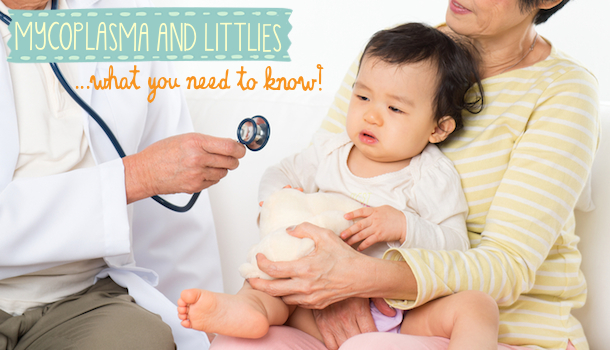
Bacterial infections and viruses are always a concern with our school-aged little ones. We’ve turned to our family doctor, Dr. Cheryl Kam, to demystify one that’s currently on the rise in Singapore.
Lately I’ve seen an uptick in suspected cases of Mycoplasma infection in our clinic. It is a poorly understood and difficult to diagnose disease, but hopefully with this article I can help demystify it!
Unfortunately for the mamas out there, it can affect your school-age children from kindergarten onwards, but is thankfully rare in those under 3 years of age.
In Singapore, outbreaks can occur at any time of the year, in schools, offices and within families. In the presence of an infected child or adult, it is good to keep an eye out for close family, schoolmates and siblings should they also develop symptoms.
Close and prolonged contact is needed for the spread of mycoplasma, so good hygiene habits such as regular hand washing, and not sharing straws and utensils, can help limit the spread of disease.
What is it?
The bacteria Mycoplasma Pneumoniae can reside in the respiratory tract without giving rise to symptoms. However, it becomes a problem only when patients start to develop signs and symptoms of an upper or lower respiratory tract infection.
It is difficult to diagnose due to its slow onset, and the way it mimics other viral and bacterial infections such as the common cold.
It’s classification as a non-specific pneumonia means it can affect other organ systems apart from the lungs, and only 5-10% of people with a mycoplasma infection actually develop pneumonia.
How do I get it?
Like many other respiratory tract infections, it is transmitted through droplets in the air, from the cough or secretions of an infected person, or from objects they have touched.
It has a long incubation period of 2-3 weeks, compared to just two days for the common cold and influenza. (Yikes!) This can make contract tracing very difficult.
Symptoms
- A gradual and slow onset of tiredness, headache, and low-grade fever often longer than 3 days.
- Dry cough that is persistent and very slowly worsening.
- Upper respiratory symptoms such as blocked nose, earache or sore throat.
- Other symptoms such as rash and muscle aches.
Complications
Fortunately, complications are rare. Only 1.8% of Mycoplasma cases go on to develop more serious complications, including brain infections, nerve damage, infection of the heart lining, multi-joint arthritis, skin eruptions and lung abscesses.

Image sourced via Shutterstock
Diagnosis
Diagnosing mycoplasma requires a thorough medical history-taking and examination, and often times, a period of surveillance. It may require a blood test and a chest X-ray.
The blood test available in Singapore tests for antibodies in the blood against Mycoplasma bacteria; it is not a test for the bacteria itself. A positive result could indicate a previous exposure to the bacteria, and may not warrant immediate treatment with antibiotics. To be certain of a current infection, your doctor may order a repeat test 2-3 weeks after the first test.
Blood tests for Mycoplasma are not straightforward to interpret, and your doctor may also form a clinical judgement based on you or your child’s ongoing symptoms.
Treatment
Pneumonia caused by Mycoplasma Pneumoniae is routinely treated with antibiotics, although the disease is usually self-limiting.
By the time anyone gets to the GP clinic they are often ill enough and generally require antibiotics by that point so as to reduce the length of illness. There is no need for isolation from usual childcare, school or work.
Prevention
Unfortunately, immunity after a Mycoplasma infection is not long lasting, and recurrences are frequent.
There is currently no vaccine for mycoplasma, and antibiotic prophylaxis for exposed contacts is not routinely recommended.
Good hygiene and hand washing (with soap and water) techniques are paramount in preventing mycoplasma, as with many other respiratory and gastrointestinal diseases.
Limiting close contact with those who are infectious can help, and if continuous exposure is unavoidable you may consider topping up your diet with immune boosters such as Vitamin C, Zinc and Antioxidants.
If any of you Mamas are concerned about mycoplasma in your family or little ones, be sure to make an appointment with your GP who can help you work through the symptoms and achieve a diagnosis and treatment plan.
Top image sourced via Shutterstock
References
www.aafp.org
www.emedicine.medscape.com






 View All
View All




 View All
View All











 View All
View All








